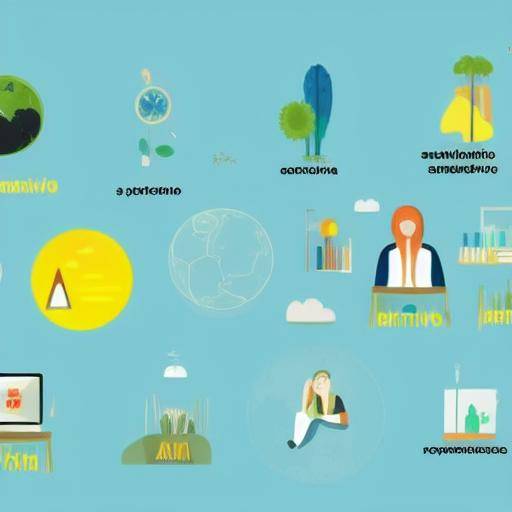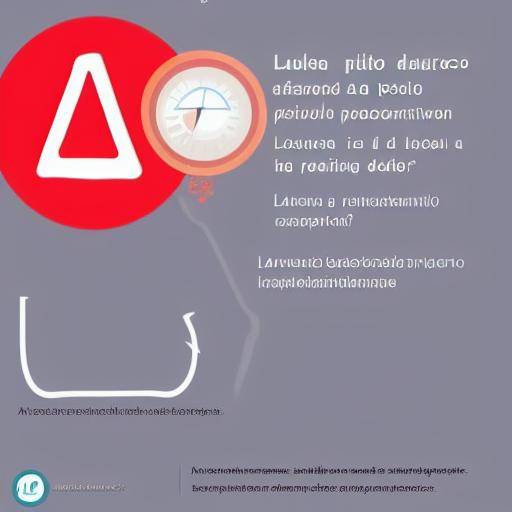
The mentality of gratitude is an attitude that can positively transform our lives. Having the ability to recognize and appreciate the blessings that surround us, however small, is fundamental to emotional and psychological well-being. In this article, we will explore in detail how to develop a culture of gratitude, connect it with a positive attitude and understand its impact on personal well-being. From its historical origins to future trends, we will examine the benefits, challenges, practical applications, advice and perspectives of experts on this fascinating topic.
Introduction
The importance of the mentality of gratitude
Living with gratitude and recognizing the goodness around us can make a significant difference in our lives. Research has shown the positive effects of gratitude on mental health, interpersonal relationships and general well-being. Developing a culture of gratitude not only involves focusing on the positive, but also learning to overcome the challenges with an optimistic perspective. In this article, we will explore how to cultivate this mentality, its relationship with a positive attitude and its impact on personal well-being.
History and Background
Gratitude has deep roots in various cultural and religious traditions, from ancient philosophy to contemporary practices. We will explore its evolution over time, from ancient Greek philosophies to modern mindfulness practices.
Philosophy of gratitude in antiquity
In ancient Greece, philosophers such as Socrates, Plato and Aristotle explored the importance of gratitude as a fundamental virtue in the pursuit of happiness and personal realization.
Religious and spiritual influence
Various religious traditions, such as Judaism, Christianity, Islam, Buddhism and Hinduism, have attributed a central value to gratitude as an essential element in spiritual practice and personal development.
Evolution towards positive psychology
In modern times, positive psychology has addressed gratitude as a key component of emotional well-being. Researchers like Martin Seligman and Robert Emmons have explored their impact on mental health and happiness.
Detailed Analysis
The mentality of gratitude has been the subject of extensive research, revealing a number of tangible benefits and perceptible challenges.
Psychological and emotional benefits
Scientific studies have shown that the regular practice of gratitude is associated with greater satisfaction with life, more positive emotions, a resilient mentality and a reduction of stress and depression.
Challenges in the practice of gratitude
Although the benefits of gratitude are significant, facing challenges to sustaining a constantly grateful mindset is common. The influence of culture, individual circumstances and the authenticity of gratitude are aspects to be considered.
Current trends and future prospects
The growing interest in gratitude has led to research in fields such as neuroscience and applied psychology. Moreover, its role in the prevention of mental health disorders and the promotion of global well-being is becoming increasingly evident.
Comprehensive review
Practical applications and best practices
The integration of gratitude into everyday life, through routines such as the writing of journals, the verbal expression of gratitude and the practice of goodness, offers multiple benefits.
Expert opinions and future perspectives
Leaders in psychology, personal coaching and well-being offer their vision of the importance of gratitude, how to effectively promote it and its influence on the positive mentality and personal well-being.
Comparison and contrasts
We explore how the mentality of gratitude relates and differs from positive attitude and personal well-being, and how these three dimensions are complemented to foster a full and fulfilling life.
Practical Tips and Accessible Recommendations
Incorporate gratitude into daily life
We provide practical advice and simple exercises to foster a culture of gratitude, including full care practices, daily reflection and expression of appreciation.
Steps to maintain a positive attitude
Strategies are presented to cultivate a positive attitude in challenging situations, manage stress and develop emotional resilience, in connection with the mentality of gratitude.
Impact on personal welfare
It analyzes how the mentality of gratitude and a positive attitude influence personal satisfaction, interpersonal relationships, job performance and physical health.
Industry Reflections and Expert Reviews
Expert advice on positive well-being and psychology
Reputable professionals in the field of well-being and psychology share effective strategies and recommendations for cultivating a culture of gratitude and promoting personal well-being.
Future trends and predictions
Emerging trends in the field of mental well-being and future projections are explored on the role of the culture of gratitude in contemporary society and culture.
Conclusions & FAQs
Conclusions
We synthesize the key points discussed, highlighting the importance of the mentality of gratitude, its link to the positive attitude and its impact on personal well-being. The importance of incorporating these elements into everyday life is emphasized to foster full and satisfactory existence.
Frequently asked questions
1. How can I begin to develop a mentality of gratitude in my daily life?
We explore simple strategies to cultivate gratitude, from maintaining a daily of thanks to the practice of full attention and expression of appreciation to others.
2. What are the benefits of maintaining a positive attitude?
The benefits of adopting a positive attitude, including increased emotional resilience, the ability to face challenges with determination and the creation of more satisfactory interpersonal relationships, are detailed.
3. How does the mentality of gratitude influence emotional and psychological well-being?
We analyze how gratitude impacts emotional and psychological well-being, contributing to greater satisfaction with life, a reduction of stress and a more optimistic attitude towards the future.
4. What role does gratitude play in interpersonal relationships and happiness?
We explore how gratitude strengthens interpersonal relationships by fostering mutual appreciation and promoting an environment of trust and respect, contributing to greater happiness and well-being.
5. How can I encourage gratitude in my working or professional environment?
We present strategies to cultivate a working or professional environment that promotes gratitude, from the recognition of the efforts of others to the promotion of collaboration and mutual support.
6. What are the main future trends in the field of gratitude and personal well-being?
We analyze emerging trends in the field of gratitude and personal well-being, offering perspectives on the continuing growth of its importance in contemporary society.
In short, cultivating a culture of gratitude and fostering a positive attitude are fundamental aspects to promote personal and emotional well-being. By incorporating gratitude into our daily lives and learning to maintain a positive perspective, we can experience a significant impact on our happiness, relationships and quality of life. As we continue to explore the dimensions of gratitude and its influence, it is crucial to remember the transforming power of this approach in our mind and heart.






















































